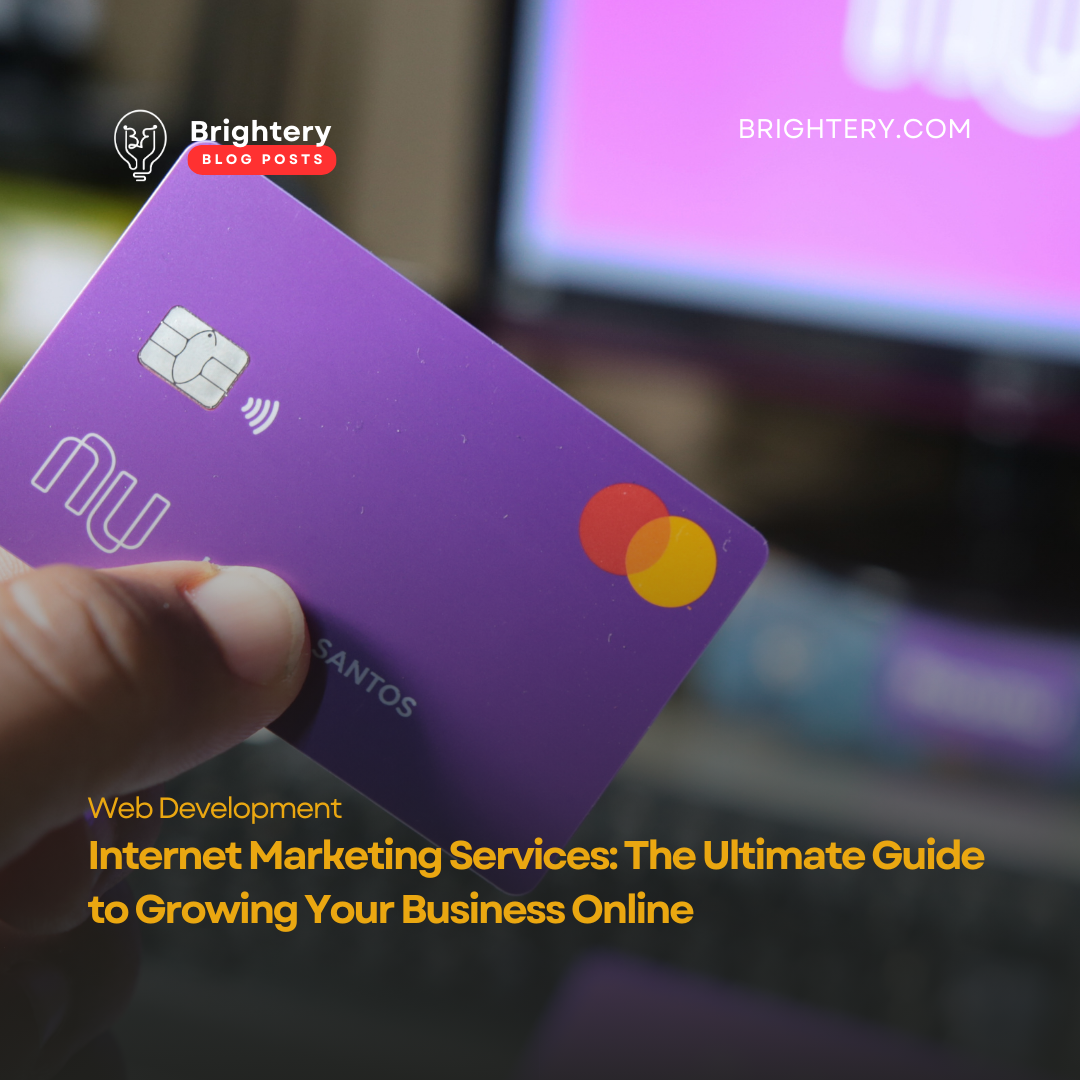In today’s digital era, an online presence is essential for any business aiming to succeed. Internet marketing services provide the tools and strategies that help businesses reach customers, grow their audience, and build lasting relationships. In this guide, we’ll cover the main types of internet marketing services, how they benefit your business, and how to create a strategy that drives results.

What are Internet Marketing Services?
Internet marketing services encompass a variety of techniques designed to promote products or services online. These services aim to increase brand awareness, drive website traffic, generate leads, and ultimately convert those leads into loyal customers.
Benefits of Using Internet Marketing Services
Global Reach and Cost-Effectiveness
Internet marketing allows businesses to reach audiences worldwide at a fraction of the cost of traditional marketing.
Real-Time Analytics and Insights
One of the biggest advantages is the ability to track customer behavior and campaign success in real-time, allowing for data-driven decisions.
Types of Internet Marketing Services
There are several types of internet marketing services that cater to different business needs and objectives:
- Search Engine Optimization (SEO)
- Pay-Per-Click Advertising (PPC)
- Social Media Marketing (SMM)
- Content Marketing
- Email Marketing
- Affiliate Marketing
Search Engine Optimization (SEO)
SEO focuses on improving your website’s visibility in search engines. It includes:
- On-Page SEO: Optimizing individual pages, including content, meta descriptions, and keywords.
- Off-Page SEO: Building backlinks from credible sources to increase domain authority.
Effective SEO helps drive organic traffic to your site, making it easier for potential customers to find you.
Pay-Per-Click Advertising (PPC)
PPC is a paid advertising model where businesses pay each time a user clicks on their ad. It includes Google Ads, Bing Ads, and social media ads. PPC is highly targeted and allows you to reach specific demographics, maximizing your ad spend’s effectiveness.
Social Media Marketing (SMM)
Social media platforms like Facebook, Instagram, Twitter, and LinkedIn offer powerful tools for brand promotion and customer engagement. Through SMM, businesses can share updates, engage with followers, and build a loyal community.
Content Marketing
Content marketing involves creating valuable and engaging content, such as blog posts, videos, infographics, and e-books. High-quality content attracts, educates, and engages your audience, establishing your business as an authority in its field.
Email Marketing
Email marketing remains one of the most effective ways to reach customers directly. By building an email list, businesses can send personalized messages, promotions, and updates to nurture customer relationships.
Affiliate Marketing
Affiliate marketing allows businesses to leverage partnerships with affiliates who promote their products or services in exchange for a commission. This strategy extends your reach by tapping into your affiliates' networks.
Choosing the Right Internet Marketing Services for Your Business
It’s crucial to align your business goals with the right marketing services. For example:
- If your goal is brand awareness: SEO and content marketing are effective choices.
- If your goal is quick conversions: PPC can provide immediate results.
Consider factors like your budget, industry, and target audience when selecting services.
Measuring Success in Internet Marketing
To understand your campaigns’ effectiveness, track metrics like:
- Conversion Rate: Percentage of visitors who take a desired action.
- Click-Through Rate (CTR): How often users click on your ads or links.
- Return on Investment (ROI): Overall revenue versus the cost of your campaigns.
Use tools like Google Analytics, social media insights, and email marketing software to monitor these metrics.
Creating an Effective Internet Marketing Strategy
An internet marketing strategy should be tailored to your audience and goals. Key steps include:
- Audience Research: Understand who your audience is and what they need.
- Goal Setting: Define specific, measurable, achievable, relevant, and time-bound (SMART) goals.
- Budgeting: Allocate resources based on your highest-impact channels.
- Content Planning: Plan consistent, relevant, and engaging content across all platforms.
Common Mistakes to Avoid in Internet Marketing
- Ignoring Analytics: Without tracking performance, you can’t improve your campaigns.
- Inconsistent Branding: Consistency across platforms is key to building a recognizable brand.
- Neglecting Mobile Users: Ensure your website and content are mobile-friendly to cater to on-the-go users.
Conclusion
Internet marketing services offer invaluable tools for businesses aiming to expand their online reach and build lasting customer relationships. By choosing the right mix of strategies and continuously optimizing campaigns based on data, you can achieve steady growth and a competitive edge in the digital landscape.
Frequently Asked Questions (FAQs)
What are the most important internet marketing services for new businesses?
- SEO and social media marketing are effective for building brand awareness and attracting early followers.
How much should I budget for internet marketing services?
- Budgeting depends on your business size, goals, and chosen strategies. Start small and increase as you see returns.
How long does it take to see results with internet marketing?
- SEO and content marketing may take months, while PPC and social media ads can show results in days or weeks.
Can I do internet marketing on my own?
- It’s possible, but working with professionals can save time and improve outcomes, especially for technical services like SEO and PPC.
How can I track the success of my internet marketing campaigns?
- Use analytics tools like Google Analytics, social media insights, and email marketing reports to monitor performance and ROI.

0 Comments
Post your comment